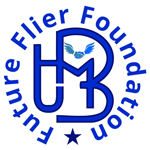Declutter Your Closet
One Man’s Trash Is another Man’s Treasure
Vastraalay is a heartfelt initiative that collects clothes from nearby communities and redistributes them to those in need. By repurposing gently used clothing, Vastraalay not only addresses the basic necessity of clothing but also promotes a sense of shared humanity and community support.
In India, most of the people who are suffering from poverty cannot afford to pay for a single meal a day. Also, they sleep on the roadside; wear dirty old clothes. In addition, they do not get proper healthy and nutritious food, neither medicine nor any other necessary thing.
As other important factor clothing insecurity, or the lack of sufficient, clean, seasonal, and size-appropriate clothes, is a much more serious problem then many people understand. Clothing is an important part for the unprivileged communities’ lives in many ways. Aside for its technical functions, clothing is also perceived extremely important as a means to meet religious and social norms, to engage in different opportunities, to show social-economic status, and to maintain self-esteem and dignity. Lack of clothing could enforce the sense of shame, stigma, and low self-esteem, which can lead to reinforcing the marginalised citizen’s perceptions and experiences of poverty.

